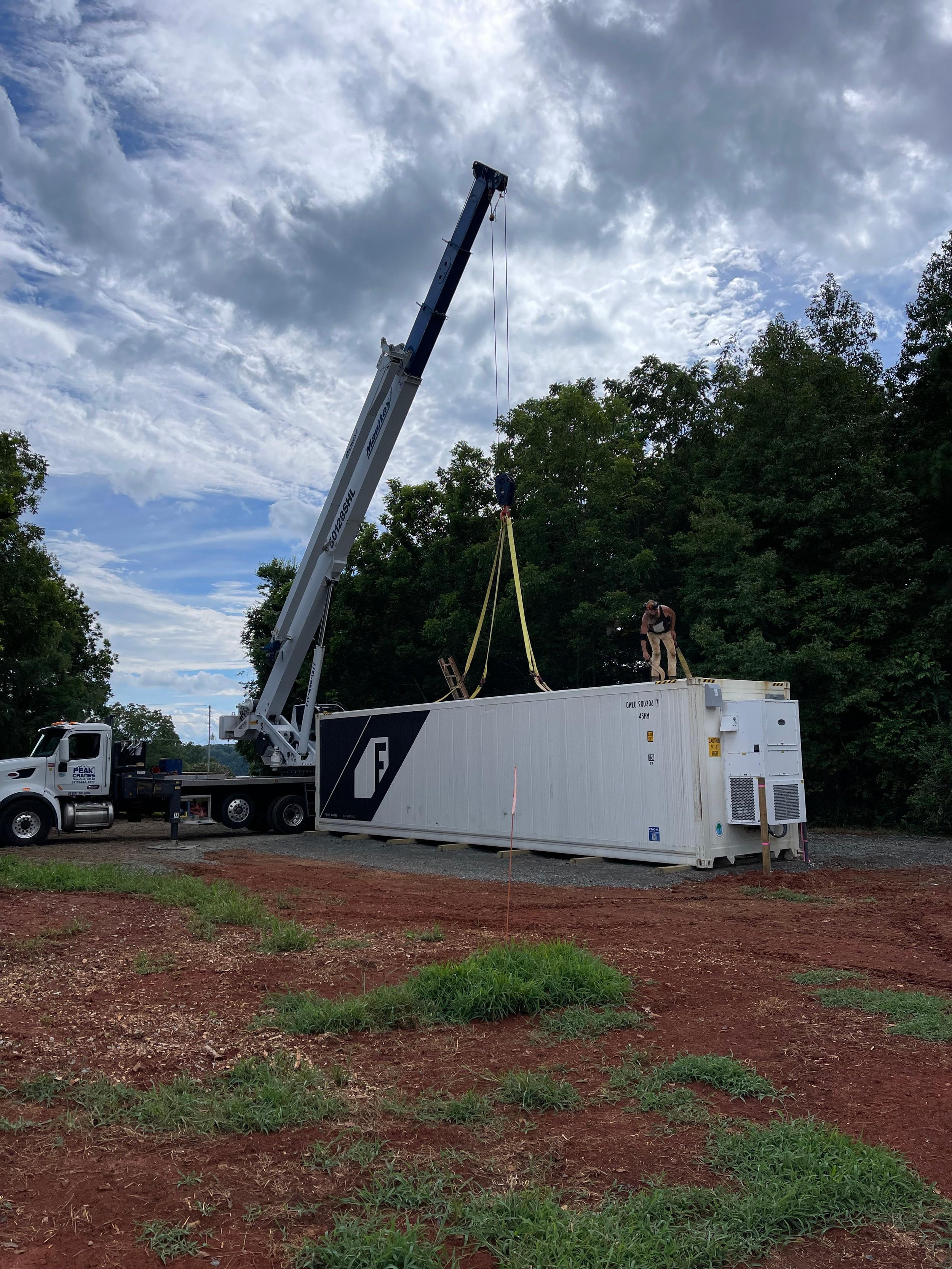Why Freight Farms Are Ideal for Zoological Gardens
By growing food through advanced hydroponic systems in repurposed shipping containers, Freight Farming not only maximizes space and efficiency but also offers a sustainable and reliable solution for growing a variety of crops.
Zoological gardens, which aim to provide the best care for their diverse animal populations, can greatly benefit from integrating hydroponic container farms into their operations.
The Concept of Freight Farms
Freight Farms are hydroponic vertical farms built within shipping containers, creating a controlled environment where crops can thrive year-round, regardless of external weather conditions. This system includes:
Hydroponic Growing Techniques: Plants are grown without soil, using nutrient-rich water solutions.
Climate Control: Temperature, humidity, and light are carefully regulated.
Efficient Space Utilization: Vertical stacking maximizes growing areas within a compact space.
Freight Farms’ flagship container farm, the Greenery™, can grow over 500 crops to meet the dietary needs of zoo animals, ensuring a consistent supply of fresh, nutritious food.
Benefits of Freight Farms for Zoological Gardens
Consistent Supply of Fresh Produce
Zoos house a variety of animals with specific dietary needs – and maintaining a consistent supply of fresh produce is crucial for their health. With a Freight Farm, your zoo can grow a wide range of crops all year round, ensuring that your animals are fed fresh, high-quality food regardless of the season.
Sustainability and Environmental Impact
Growing produce in a Freight Farm uses 99% less water than traditional farming methods. By establishing a container farm directly on-site to grow crops, you can reduce your zoo’s high food miles. This lowers the carbon footprint and ensures that the produce is as fresh as possible when fed to the animals.
Space Efficiency
Zoos often face space constraints, especially in urban areas. Container farming offers a compact solution that maximizes growing space through vertical farming. This allows zoos to produce a significant amount of food within 320 sq. ft.
Cost Efficiency
By growing their own produce, zoos can significantly cut down on food costs. With a Freight Farm, your zoo can reduce dependency on external suppliers, which can be particularly advantageous in remote or underserved areas where fresh produce may be more expensive or harder to obtain.
Educational Opportunities
Container farms also provide unique educational opportunities for zoos. They can be used to teach visitors about sustainable farming practices, the importance of fresh produce in animal diets, and innovative solutions for environmental challenges.
Detailed Crop Guide and Animal Beneficiaries
The Greenery container farm can grow over 500 varieties of crops. Let's explore some key produce that can be grown in a Freight Farm and which animals can benefit from them.
Lettuce Varieties
Lettuce is a staple in many animal diets. It's hydrating and packed with essential nutrients. The Greenery model can grow a wide range of lettuce varieties, ensuring diversity in the diets of zoo animals.
Bibb: 1,450 heads in 3 weeks
Butterhead: 1,450 heads in 3 weeks
Leaf: 1,450 heads in 3 weeks
Romaine: 1,450 heads in 3 weeks
Animals: Tortoises, rabbits, guinea pigs, and various bird species such as parrots and ducks.
Leafy Greens
Leafy greens are vital for their high vitamin and mineral content. They are particularly beneficial for animals that require a nutrient-rich diet.
Arugula: 127 pounds per week
Kale: 171 pounds per week
Bok Choi: 204 pounds per week
Animals: Iguanas, tortoises, various bird species, and primates.
Herbs
Herbs offer more than just nutrition; they provide sensory enrichment for many animals, enhancing their overall well-being.
Basil: 124 pounds per week
Chives: 45 pounds per week
Dill: 95 pounds per week
Parsley: 109 pounds per week
Cilantro: 67 pounds per week
Mint: 100 pounds per week
Animals: Primates, rabbits, guinea pigs, and some bird species.
Roots
Root vegetables are an excellent source of fiber and essential nutrients, making them a valuable addition to the diets of many zoo animals.
Radishes: 324 pounds per week
Hirosaki Turnip: 310 pounds per week
Beets: 40 pounds per week
Animals: Elephants, pigs, various hoofed animals, and some bird species.
Flowers
Edible flowers can add variety and enrichment to animal diets, providing both nutritional benefits and visual stimulation.
Calendula, Nasturtium, Viola, Zinnia: Various quantities
Animals: Tortoises, some bird species, and certain primates.
Integrating Freight Farms into Zoo Operations
Implementing container farms in zoos involves several key steps, from initial setup to ongoing maintenance and operation. Here’s how zoos can effectively integrate this technology into their daily operations:
Initial Setup
Site Selection: Identify a suitable location within the zoo for the Freight Farm. Consider factors such as accessibility, proximity to animal enclosures, and available utilities (water, electricity).
Installation: Work with the Freight Farms team to set up the container farm. This includes connecting the necessary utilities and ensuring the environment is ready for crop cultivation.
Training: Staff training is crucial. The Freight Farms team offers training programs to ensure zoo staff can effectively manage and maintain the farm.
Daily Operation
Crop Management: Regular monitoring and maintenance of the crops is essential. This includes checking water levels, nutrient solutions, and ensuring optimal climate conditions within the farm.
Harvesting: Establish a harvesting schedule to ensure a continuous supply of fresh produce. Coordinate with animal care staff to align harvesting with feeding schedules.
Record Keeping: Maintain detailed records of crop yields, feeding schedules, and any issues that arise. This helps optimize operations and ensure the best possible animal care.
Conclusion
Container farms offer an innovative, sustainable, and efficient solution for zoological gardens seeking to enhance the nutrition and well-being of their animals. By providing a consistent supply of fresh produce, reducing environmental impact, and offering educational opportunities, a Freight Farm is an ideal addition to any zoo.
By integrating a Freight Farm, zoos can not only improve the quality of care for their animals but also contribute to global sustainability efforts, demonstrating a commitment to innovation and environmental stewardship.
For more information on how Freight Farms can benefit your zoological garden, visit Freight Farms and explore our range of products and services.










